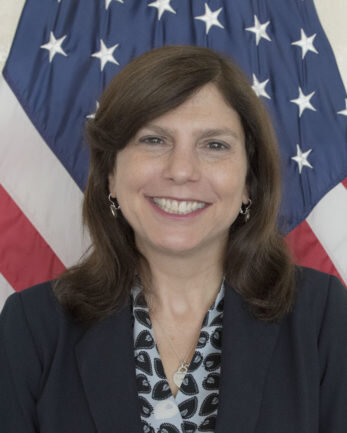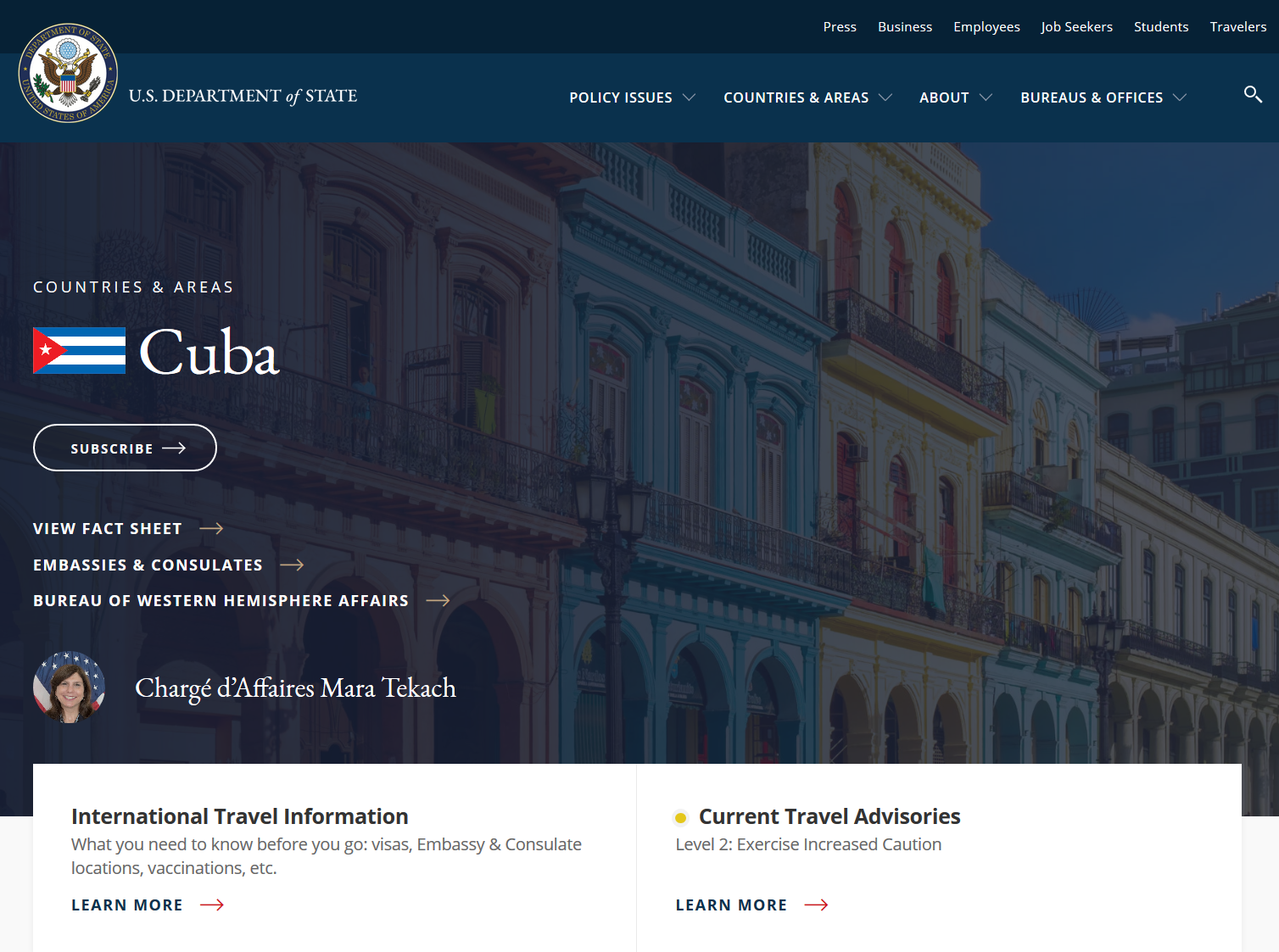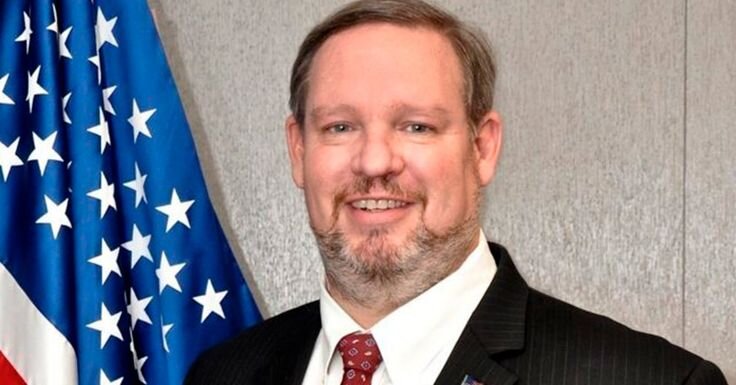Libertad Act Devouring Plaintiffs, Protecting Defendants, Helping Cuba. Is This What President Trump And U.S. Congress Intended? What, If Anything, Will They Do? Can Do?
/Libertad Act Devouring Plaintiffs, Protecting Defendants, Helping Cuba. Is This What President Trump And U.S. Congress Intended? What, If Anything, Will They Do? Can Do?
U.S. Governments Avoid Direct Negotiations- Even Before Cuba Indicted It May Owe Nothing
The Castro-to-Castro-to-Diaz-Canel succession and transition was not anticipated by advocates of the Libertad Act
In 1995 and 1996, authors and supporters of the Cuban Liberty and Democratic Solidarity Act of 1996 (known as “Libertad Act”) were forceful, unyielding in promoting it would do what successive occupants of The White House had failed to due since 1960- hold directly and indirectly accountable the government of the Republic of Cuba for the expropriation without compensation of assets belonging to United States citizens (certified claimants) and, uniquely (at the expense certified claimants), of assets belonging to individuals who were Republic of Cuba nationals (non-certified claimants) at the time of the expropriation without compensation.
Important to note that in 1995 and 1996 there was no collective effort or public effort by the largest certified claimants to advocate for enactment of the Libertad Act. Since Title III lawsuits were permitted in 2019, .08% of the 5,913 certified claimants have filed lawsuits.
In March 1996, when President Bill Clinton signed the legislation into law, neither advocates nor opponents anticipated suspension for twenty-three years of the Title III provision (permitting lawsuits) in the law- first by the Clinton Administration, then Bush Administration, then Obama Administration and then through the first two years of the Trump Administration.
No one too predicted implementation of Title III would arrive after H.E. Fidel Castro, President of the Republic of Cuba, would die and be succeeded by his brother H.E. Raul Castro, President of the Republic of Cuba; who in turn would serve, retire and be succeeded by H.E. Miguel Diaz-Canel, President of the Republic of Cuba. The Castro-to-Castro-to-Diaz-Canel succession and transition was and remains disruptive for advocates of the Libertad Act.
And, no one predicted Title III would be implemented after the world’s three-largest cruise lines (all United States-based) would operate itineraries to the Republic of Cuba; the world’s largest hotel company (United States-based) would manage a property (with plans for a second) in the Republic of Cuba; and the seven-largest United States-based airlines would provide regularly-scheduled services from the United States to the Republic of Cuba. Remarkably, some of the travel-related United States-based companies operating in the Republic of Cuba were/are certified claimants.
The nineteen-year delay implementing Title III has been responsible, in part, for the dismissal of some lawsuits filed since permitted in May 2019. Some of the original owners of certified claims and non-certified claims have died; some of their heirs have died. There have been issues with the texts of wills and testaments.
The language in Title III of the Libertad Act, which plaintiff attorneys and defendant attorneys concur was written imprecisely, has also resulted in lawsuit dismissals based upon plaintiff standing (do they “own” the claim), were they United States citizens by 1996, the definition of “inheritance,” and the definitions of “trafficking” and “lawful activities” which are fundamental to the skeleton of the Libertad Act.
Thus far, United States District Courts have provided a blueprint as to what would need be changed in the Libertad Act to provide non-dismissible remedies.
New legislation may be required to do what the first legislation said it would do after it became law.
But, changes to the Libertad Act may not achieve a desired result. Might there also need be an amendment to the Foreign Sovereign Immunities Act (FSIA)? Of the twenty-six Title III lawsuits filed since 2019, only one lawsuit is against entities controlled by the government of the Republic of Cuba- and this lawsuit may be dismissed due to sovereign immunity.
Changes to the FSIA could include: Language to define acts of a sovereign in a more expansive manner, particularly relating to commercial actions. The Republic of Cuba could lose its ability to claim sovereign immunity in Title III lawsuits. Language could be inserted to recognize any country listed among State Sponsors of Terrorism would lose sovereign immunity protections and be subject to lawsuits for commercial actions- The Trump Administration seems to be moving towards returning the Republic of Cuba to the list. The doctrine of retroactivity would need be accommodated, but for 9th largest certified claimant Exxon Mobil Corporation which has filed a Title III lawsuit, it has a second certified claim which could then be used as a basis for a new lawsuit using a revised FSIA.
With the current dismissals and language of the rulings by the judges, might few, if any of the initially-filed twenty-six Title III lawsuits be upheld by a judge, upheld during appeals, and then result in a plaintiff collecting on a judgement against a defendant? The odds today are not promising.
There was always another pathway: The United States and the Republic of Cuba would directly, government-to-government, negotiate a settlement. This is precisely what the United States and the Republic of Cuba have done with countries throughout the world. This is precisely what the certified claimants expected and continue to expect the United States government to do on their behalf. Thus far during the 21st Century, the Obama Administration had the best opportunity for negotiation. However, it along with the [Raul] Castro Administration recklessly squandered their moments.
Unfortunately, to date, not one of the eleven men who have occupied the Oval Office since 1960 focused upon a public, determined effort to negotiate a settlement, including current President Donald Trump- who has for decades promoted his negotiating prowess.
There remains concern, however, the Republic of Cuba has no intention of making payments to certified claimants (or non-certified claimants) for assets expropriated without compensation.
In defending itself against a Title III lawsuit filed by Exxon Mobil Corporation, the Republic of Cuba’s attorneys wrote: “Many countries have acted upon the principle that, in order to carry out desired economic and social reforms of vast magnitude, they must have the right to seize private property without providing compensation” and ““measures of defence against external threats” are among the exceptions to the requirement of compensation for taking foreign nationals’ property.”
Question: If the Libertad Act language is faulty, if the FSIA protects the government of the Republic of Cuba, if successive United States administrations have refused to focus upon a negotiated resolution, if court filings cast doubt upon interest by the Republic of Cuba to accept responsibility for compensating certified claimants, what, if any, option(s) exist for certified claimants (and non-certified claimants)?
The President of the United States has responsibility to negotiate a resolution to the issue of the 5,913 certified claims against the Republic of Cuba. To date, eleven occupants of 1600 Pennsylvania Avenue NW have failed to do so.
Will President Trump during his second term or a President Joe Biden during his first term do what predecessors have not done?
More than sixty years (21,958 days) has passed since the first expropriation by the government of the Republic of Cuba.
Previous Analysis: Does Cuba Have Intention Under Any Circumstances To Compensate Certified Claimants? Court Arguments Suggest It Does Not, Will Not, No Matter What (24 June 2020)
Libertad Act Lawsuit Statistics
26 Lawsuits Filed (10 Certified Claimants & 16 Non-Certified Claimants)
US$163,700.00 Court Filing Fees
55 Law Firms
162+ Attorneys
8,600+ Filed Court Documents
US$4.5+ Million Law Firm Billable Hours (estimated 85% by defendants)
14 Countries Impacted
80 Plaintiffs (some in multiple cases)
4 Class Action Requests
50 Defendants (including corporate parent, subsidiaries; some sued in multiple lawsuits)
20 United States Defendants (not including subsidiaries)
5 Republic of Cuba Initial Defendants (two remaining)
20 Non-United States Defendants
5 European Union-Based Defendants
5 Companies Notified As Potential Defendants
Lawsuits filed in United States District Courts in Southern Florida (20), Washington DC (1), Western Washington State (1), Nevada (1), Southern District New York (1), Northern Texas (1) and Delaware (2). Some cases have been transferred and some cases have been consolidated; one dismissed by Plaintiff.
55 Law firms retained by plaintiffs/defendants: Ainsworth & Clancy; Astigarraga Davis Mullins & Grossman; Akerman; Andrews & Springer; Arent Fox; Aronovitz Law; Baker & McKenzie; Ballard Spahr; Bird & Bird; Boies Schiller Flexner; Bracewell; Carlton Fields; Coffey Burlington; Colson Hicks Eidson; Creed & Gowdy; Cueto Law Group; Duane Morris, Dubbin & Kravetz; Ewusiak Law; Gibson, Dunn & Crutcher; Hirzel Dreyfuss and Dempsey; Hogan Lovells; Holland & Knight; Jones Day; Jones Walker; Kantrowitz, Goldhamer, & Graifman; Kelly Hart & Hallman; Kozyak Tropin & Throckmorton; Law Office of Andre G. Raikhelson; Law Office of Alexander Villarreal; Law Offices of Paul Sack; Law Offices of Robert L. Muse; Mandel & Mandel; Manuel Vazquez PA; MoloLamken; Margol & Margol; Mayer Brown; Morgan, Lewis & Bockius; Morris Nichols Arsht & Tunnell; Pacifica Law Group; Potter Anderson & Corroon; Rabinowitz, Boudin, Standard, Krinsky & Lieberman; Reed Smith; Reid Collins & Tsai; Rice Reuther Sullivan & Carroll; Rivero Mestre; Roig & Villarreal; Rosenthal, Monhait & Goddess; Scott Douglass & McConnico; Sidley Austin; Steptoe & Johnson; Venable; Wicker Smith O’Hara McCoy & Ford; Young, Conaway, Stargatt & Taylor; Walden, Macht & Haran; Zumpano Patricios.
Countries impacted: Canada, Chile, China, France, Germany, Netherlands, Panama, Republic of Cuba, Singapore, Spain, Switzerland, Thailand, United Kingdom, United States.
Certified Claimant Participation: Of the 5,913 claimants certified by the United States Foreign Claims Settlement Commission (USFCSC), these (original claim value in parenthesis) have filed Libertad Act lawsuits: 2nd largest certified claimant North American Sugar (US$97,373,414.72); 9th largest certified claimant Exxon Mobil Corporation (US$71,611,002.90 and US$173,157.12); 31st largest certified claimant Havana Docks Corporation (US$9,179,700.08); 88th largest certified claimant Julies Shepard (US$2,033,959.17); 195th largest certified claimant Javier Garcia-Bengochea (US$547,365.24).
Libertad Act
The Trump Administration has made operational Title III and further implemented Title IV of the Cuban Liberty and Democratic Solidarity Act of 1996 (known as “Libertad Act”).
Title III authorizes lawsuits in United States District Courts against companies and individuals who are using a certified claim or non-certified claim where the owner of the certified claim or non-certified claim has not received compensation from the Republic of Cuba or from a third-party who is using (“trafficking”) the asset.
Title IV restricts entry into the United States by individuals who have connectivity to unresolved certified claims or non-certified claims. One Canada-based company and on Spain-based company are currently known to be subject to this provision based upon a certified claim.
Suspension History
Title III has been suspended every six months since the Libertad Act was enacted in 1996- by President William J. Clinton, President George W. Bush, President Barack H. Obama, and President Donald J. Trump.
On 16 January 2019, The Honorable Mike Pompeo, United States Secretary of State, reported a suspension for forty-five (45) days.
On 4 March 2019, Secretary Pompeo reported a suspension for thirty (30) days.
On 3 April 2019, Secretary Pompeo reported a further suspension for fourteen (14) days through 1 May 2019.
On 17 April 2019, the Trump Administration reported that it would no longer suspend Title III.
On 2 May 2019 certified claimants and non-certified claimants were permitted to file lawsuits in United States courts.
Certified Claims Background
There are 8,821 claims of which 5,913 awards valued at US$1,902,202,284.95 were certified by the United States Foreign Claims Settlement Commission (USFCSC) and have not been resolved for nearing sixty years (some assets were officially confiscated in the 1960’s, some in the 1970’s and some in the 1990’s). The USFCSC permitted simple interest (not compound interest) of 6% per annum (approximately US$114,132,137.10); with the approximate current value of the 5,913 certified claims US$8.7 billion.
The first asset to be expropriated by the Republic of Cuba was an oil refinery in 1960 owned by White Plains, New York-based Texaco, Inc., now a subsidiary of San Ramon, California-based Chevron Corporation (USFCSC: CU-1331/CU-1332/CU-1333 valued at US$56,196,422.73).
The largest certified claim (Cuban Electric Company) valued at US$267,568,413.62 is controlled by Boca Raton, Florida-based Office Depot, Inc. The second-largest certified claim (International Telephone and Telegraph Co, ITT as Trustee, Starwood Hotels & Resorts Worldwide, Inc.) valued at US$181,808,794.14 is controlled by Bethesda, Maryland-based Marriott International; the certified claim also includes land adjacent to the Jose Marti International Airport in Havana, Republic of Cuba. The third-largest certified claim valued at US$97,373,414.72 is controlled by New York, New York-based North American Sugar Industries, Inc. The smallest certified claim is by Sara W. Fishman in the amount of US$1.00 with reference to the Cuban-Venezuelan Oil Voting Trust.
The two (2) largest certified claims total US$449,377,207.76, representing 24% of the total value of the certified claims. Thirty (30) certified claimants hold 56% of the total value of the certified claims. This concentration of value creates an efficient pathway towards a settlement.

































